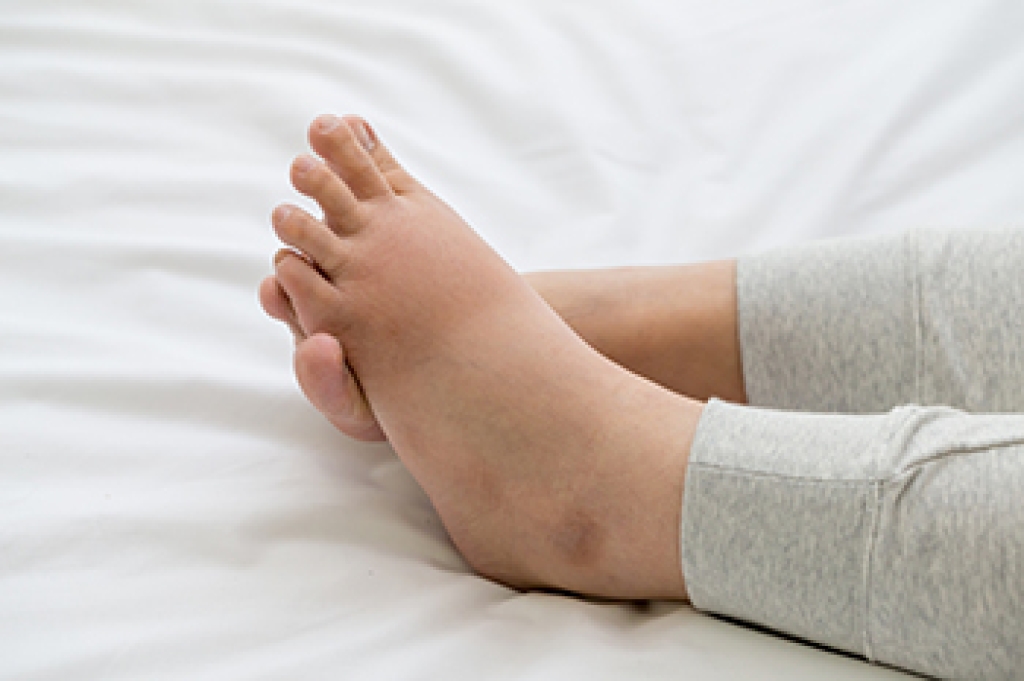
During pregnancy, it is common to experience changes in the feet, which may include foot cramps, swelling, more noticeable veins, and toenail problems. Self-care, including resting frequently, stretching, staying hydrated, and wearing well-fitting shoes may help most foot and leg issues during pregnancy. While these conditions are generally not serious, it is essential to recognize that some changes in the legs and feet could signal pregnancy complications, such as preeclampsia, which require immediate medical attention. Pregnancy leads to hormonal fluctuations that relax ligaments and prepare the body for childbirth, affecting various parts, including the feet. This hormonal influence can result in flat feet, overpronation, and an increase in shoe size. The additional weight from the growing uterus, fetus, and breasts can place added stress on the feet, often causing heel pain like plantar fasciitis due to the strain on the arches. Changes in the center of gravity and posture can also impact balance. To manage foot and heel discomfort during pregnancy, it is suggested that you schedule an appointment with a podiatrist who can properly address any foot or ankle problems you may encounter.
Pregnant women with swollen feet can be treated with a variety of different methods that are readily available. For more information about other cures for swollen feet during pregnancy, consult with Shawn Echard, DPM from Laurel Podiatry LLC. Our practitioner will attend to all of your foot and ankle needs.
What Foot Problems Can Arise During Pregnancy?
One problem that can occur is overpronation, which occurs when the arch of the foot flattens and tends to roll inward. This can cause pain and discomfort in your heels while you’re walking or even just standing up, trying to support your baby.
Another problem is edema, or swelling in the extremities. This often affects the feet during pregnancy but tends to occur in the later stages.
How Can I Keep My Feet Healthy During Pregnancy?
- Wearing orthotics can provide extra support for the feet and help distribute weight evenly
- Minimize the amount of time spent walking barefoot
- Wear shoes with good arch support
- Wear shoes that allow for good circulation to the feet
- Elevate feet if you experience swelling
- Massage your feet
- Get regular, light exercise, such as walking, to promote blood circulation to the feet
If you have any questions, please feel free to contact our offices located in Greensburg and Somerset, PA . We offer the newest diagnostic and treatment technologies for all your foot care needs.
